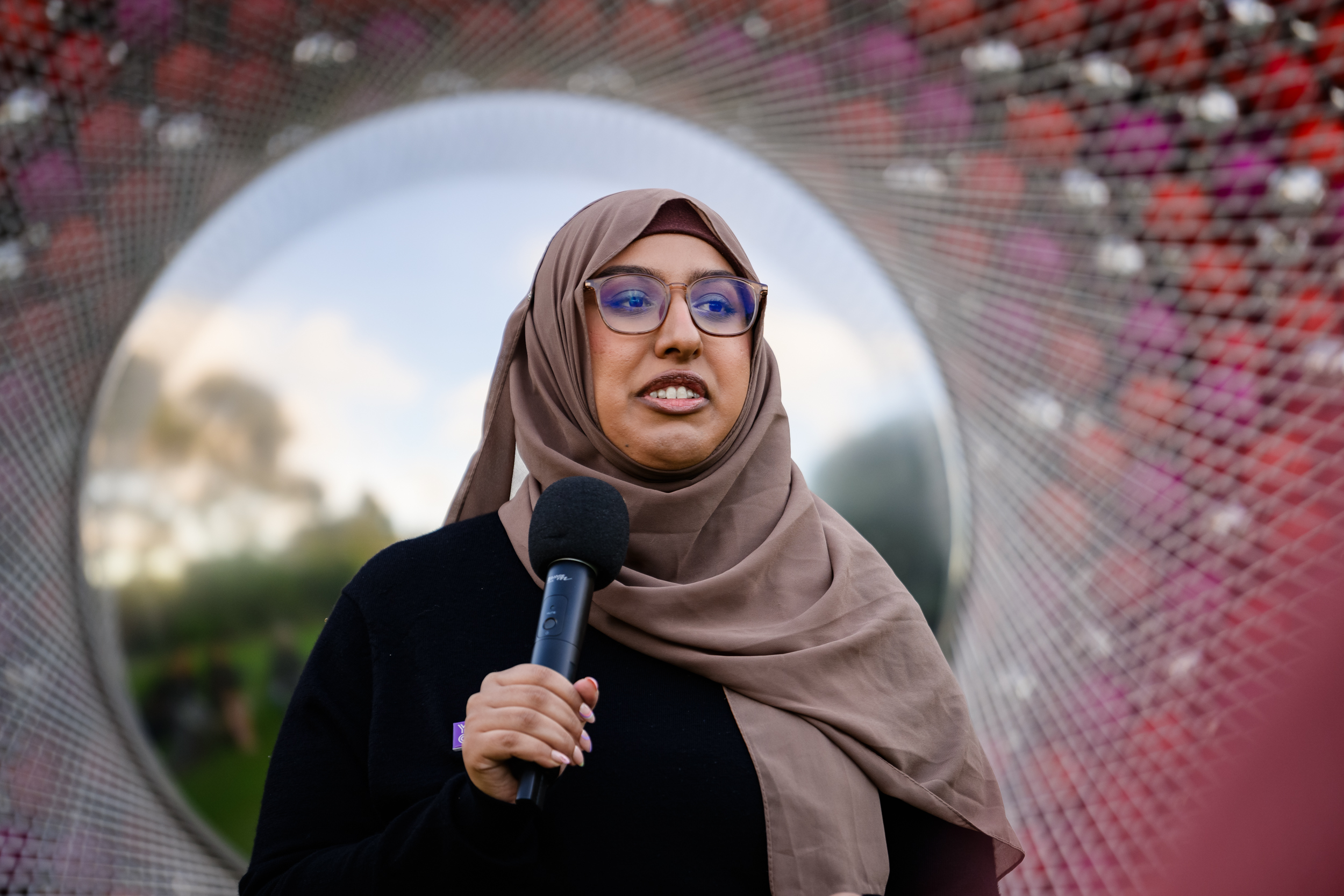Aaminah Ghani
Profile
Aaminah Ghani is President of YWCA Tāmaki Makaurau and a member of the YWCA national board. Born and brought up in Kirikiriroa Hamilton, Aaminah has been inspired by her family to give back to the community and advocate for just processes. For Aaminah this means amplifying the voices and presence of young women of colour in areas where they are often unseen. Aaminah has a Bachelor of Management Studies from the University of Waikato and in 2018 was awarded the Prime Minister’s Scholarship for Asia.
The YWCA is a proudly feminist organisation supporting women and girls, and has been challenging gender inequality in Aotearoa for over 140 years. The YWCA advocates for the well-being, development and achievement of women and girls in a society that still does not afford them an equal place alongside men.

Insight
Writing on behalf of YWCA Tāmaki Makaurau, Aaminah lays down a challenge, asking “is gender equality enough?” and “how will you help us move forward?”
Aaminah raises the uncomfortable question, what does gender equality mean? For second-wave feminists, gender equality had the clarity of meaning women having equal footing with men. Not being shut out of educational opportunities, being able to break through the glass ceiling, not expected to shoulder the burden of domestic duties in relationships. But as feminist theory has evolved through the third and fourth waves, taking on an intersectional perspective, ‘gender’ has morphed from the binary to embrace a spectrum of gender identities and diverse expressions. The meaning of ‘equality’ has also evolved, expanding beyond purely reference to equality with men within existing systems and hierarchies.
Aaminah’s text leads us to a more aspirational future. A future where equality for everyone is measured against a new ideal, not the existing orthodoxy. A future that we arrive at together through collective action.
Te Reo Glossary
Te Reo Glossary
ākonga
student, pupil
alofa
love, affection (Cook Islands Māori language)
Aotearoa
New Zealand
aroha
love, affection
haere rā
goodbye, farewell
hapū
subtribe, part of a kinship group
ira tangata
term used for intersex in a Māori context
irawhiti
term used for transgender in a Māori context
Itāria
Italy
iwi
extended kinship group descended from a common ancestor and associated with a distinct territory in Aotearoa
kairangahau
researcher
kaitiaki
guardian
kaitiakitanga
guardianship, stewardship
kia kaha ngā wāhine toa
be strong woman warriors
kia ora
hello, greetings
kia orana
hello, greetings (Cook Islands Māori language)
kōrero
conversation, discussion
kuia
female elder
mahi
work
māmā
mother, mum
mana
status, prestige, authority,
Māngere
a major suburb in South Auckland, New Zealand
Māori
Indigenous people of Aotearoa New Zealand
mauri
life force, life principle
moana
ocean, sea
Ōtautahi
Christchurch, city in South Island, New Zealand
Ōtepoti
Dunedin, city in South Island, New Zealand
pākeha
New Zealander of European/foreign descent
peka
branch (of a tree, river, organisation)
Pōneke
Wellington, Capital of New Zealand
rangatahi
youth, young people
takatāpui
queer, gay, rainbow community
Tāmaki Makaurau
Auckland, city in North Island, New Zealand
tapu
sacred, prohibited
tautoko
to support, advocate
Te Kāhui Tika Tangata
Human Rights Commission, New Zealand
Te Kaunihera Wahine o Aotearoa
National Council of Women of New Zealand
Te Kotahitanga
Autonomous Māori Parliament from 1892 to 1902
Te Moana-Nui-ā-Kiwa
the Pacific Ocean
te reo
the Māori language
Te Ropu Wahine Maori Toko i te Ora
Māori Women’s Welfare League
Te Wāhi Wāhine o Tāmaki Makaurau
Auckland Women’s Centre
tikanga
protocol, correct procedure
wāhine
woman, women
wāhine kaha
strong woman/women
waiata
song, chant
waiata taitoko
song of support usually sung after a speech
wairua
spirit, soul
whakapapa
genealogy, lineage
whānau
family, extended family group
whare
house, building